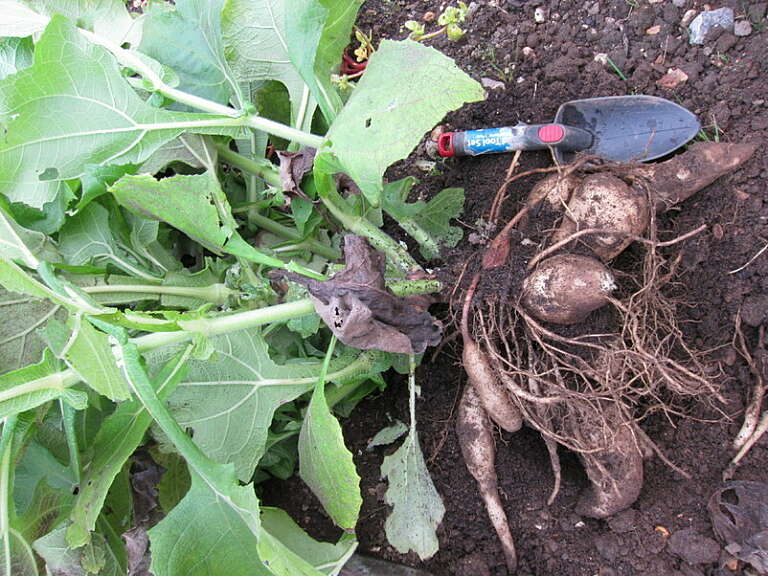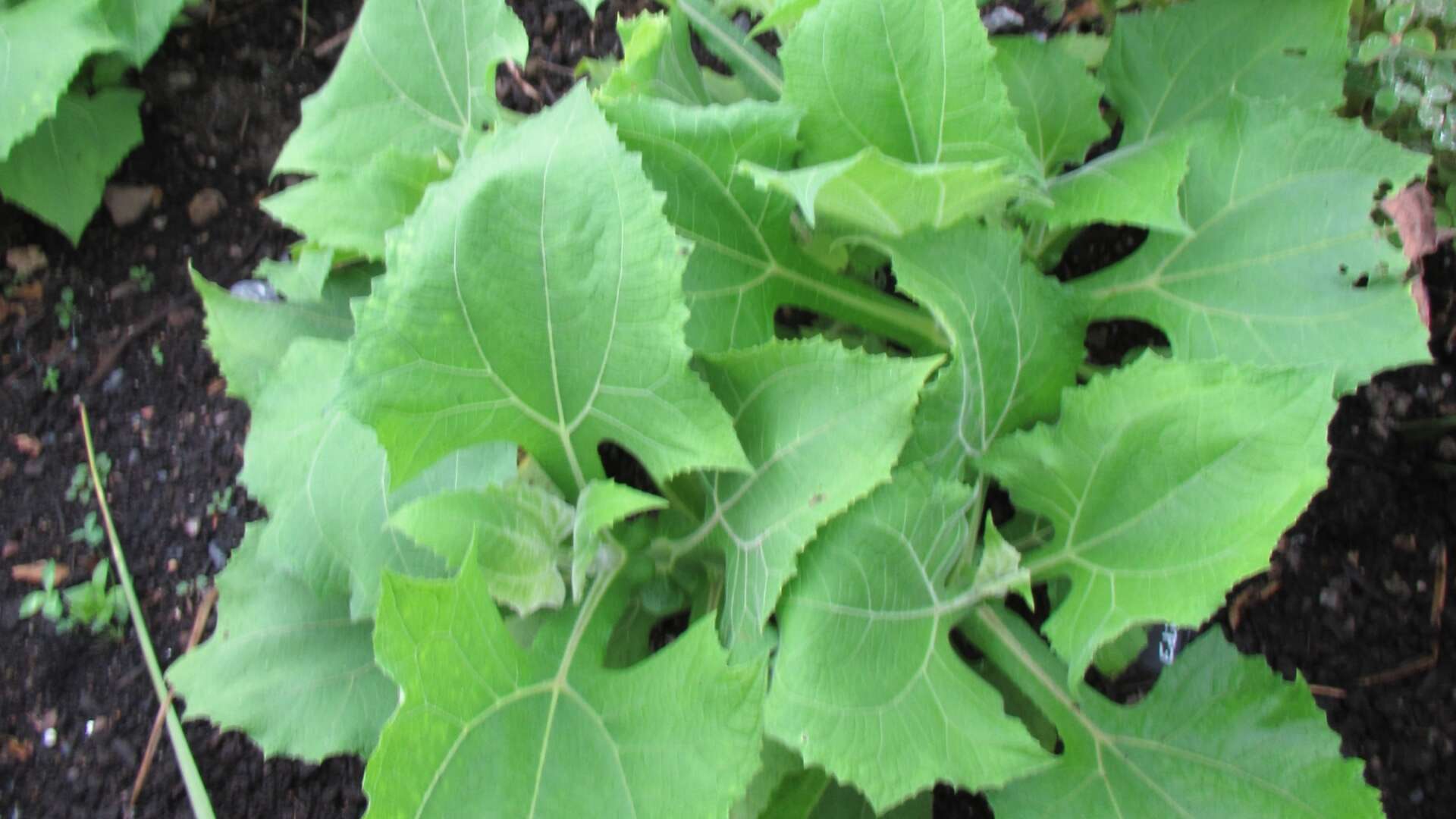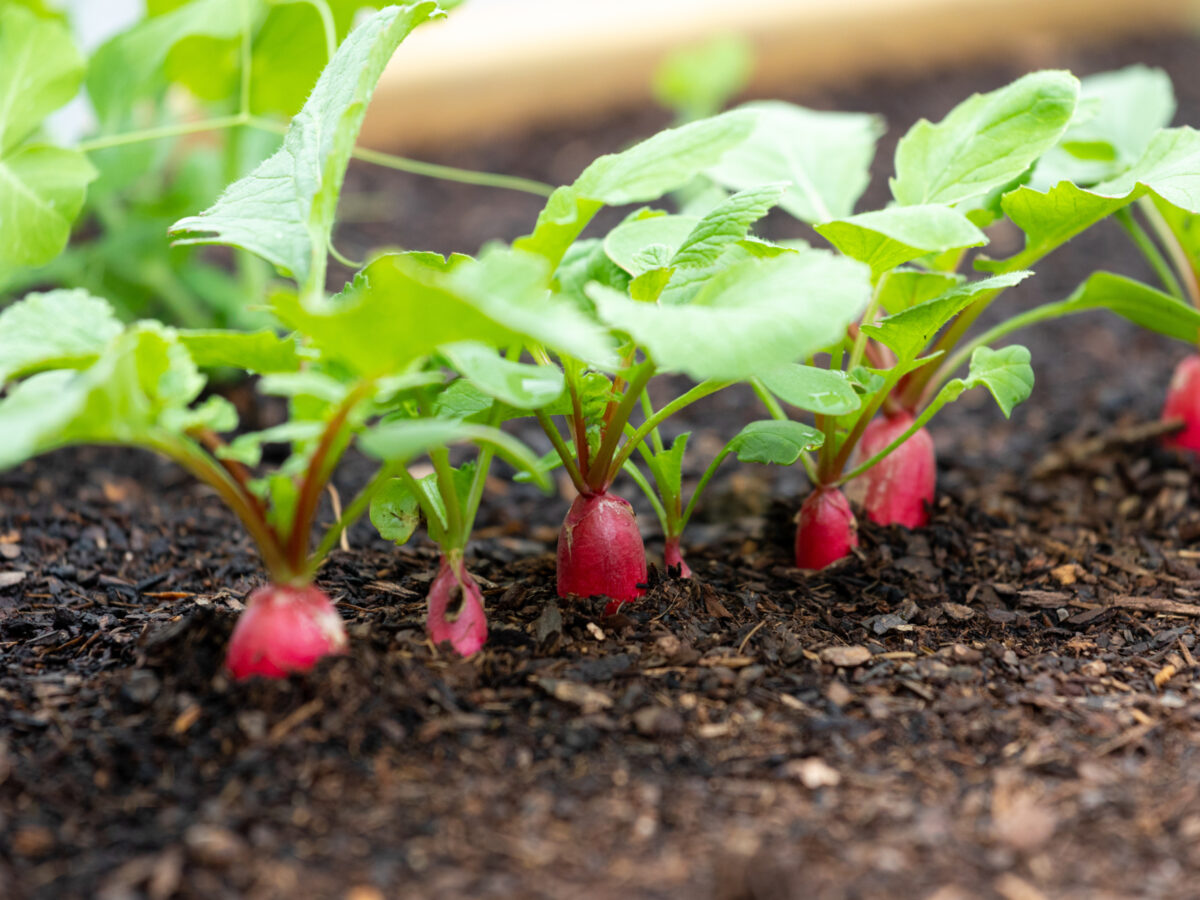
Yacon
- Tags
- Vegetables and herbs
| Growing calendar | |
|---|---|
| Sow indoors | April |
| Harvest | Oct-Nov |
Yacon (Smallanthus sonchifolius) is a large plant with attractive silvery foliage and occasional small orangey-yellow flowers. As happy in a flower border as it is in the veg patch, it appreciates a fertile, free draining soil.
How to grow yacon
Yacon is as tender as a dahlia and should be treated in the same way. They are grown from a crown of tiny tubers. Start pieces of the crown off in April, in 15cm/6in pots of peat-free compost somewhere bright and frost-free. Like dahlias, yacon tubers won’t grow, being merely storage organs, unless they have a bit of crown attached.
Don’t keep plants too warm or they will get leggy. A cold greenhouse or unheated room windowsill is fine. If they get too big, take cuttings of the longest shoots (again, like dahlias). Protect with fleece on very cold nights.
Harden plants off and put out in late May-early June, in a sunny site which has had some compost or well-rotted manure incorporated into the soil.
Plants get surprisingly big by late summer, so need at least 60-90cm/2-3ft between them. You can often grow a catch crop of salads between them before they reach maximum size,1.5m/4ft or so. They occasionally need staking.

Harvesting yacon tubers
Like dahlias, the tubers reach maximum size late in the season, so plants should be lifted once the foliage has been killed off by frost. Cut the stems off first.
Yacon storage tubers are massive – up to 1kg/over 2lb each – and can produce over 10 per plant. They also produce a crown of tiny tubers at the base of the stem, which are what you save to grow on next season.
Store the crowns in pots of spent compost, in a dark frost-proof place. Leave the tubers exposed to light and air under cover, in a shed or garage for the skins to dry and harden for a couple of weeks, which improves the flavour greatly.
Using yacon in the kitchen
Yacon tubers can be eaten raw either when they are still crisp and crunchy, or left to ripen when they are pleasantly sweet and juicy, or cooked. Only try small amounts at first, because the tubers contain inulin, which humans have trouble digesting (like Jerusalem artichokes, they will make you windy, until your gut flora become accustomed to them!) Like potatoes, they will store for a few months.
Troubleshooting
Keep well-watered for maximum yields, and watch out for slugs and snails.
| Growing notes | |
|---|---|
| Difficulty | Easy |
| Germination time | N/A |
| Average time to harvest | 5 months |
| Equipment needed | Frostfree protected growing area to start plants into growth: space |
| Average plant size | Varies but 1.3m tall and 60cm across not uncommnon |
| Family group to grow with | Daisy |
| Key nutritional content | Probiotics: in fresh root, some vitamin C |
| Latin name | Smallanthus sonchifolius |

Love our growing advice?
Get a direct link to our horticultural advice team, as well as members-only online resources with a Garden Organic membership.